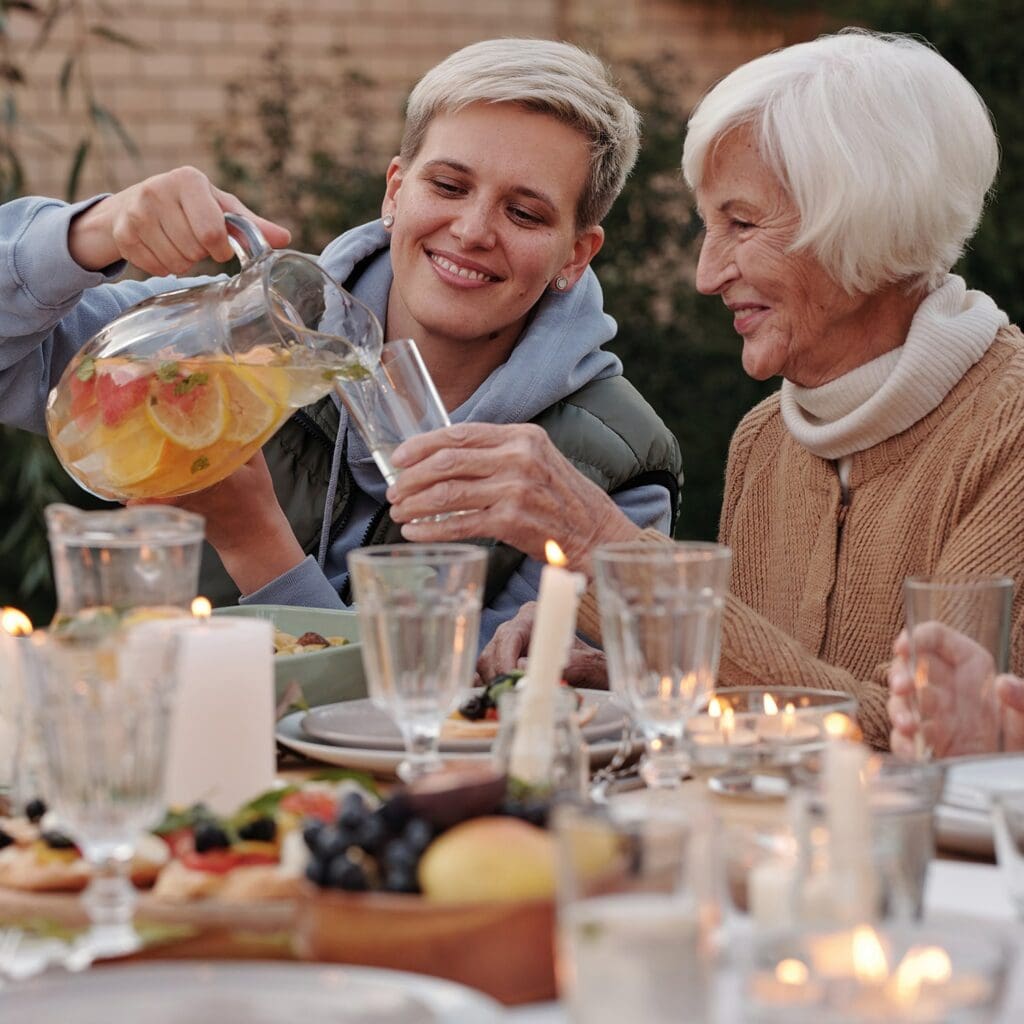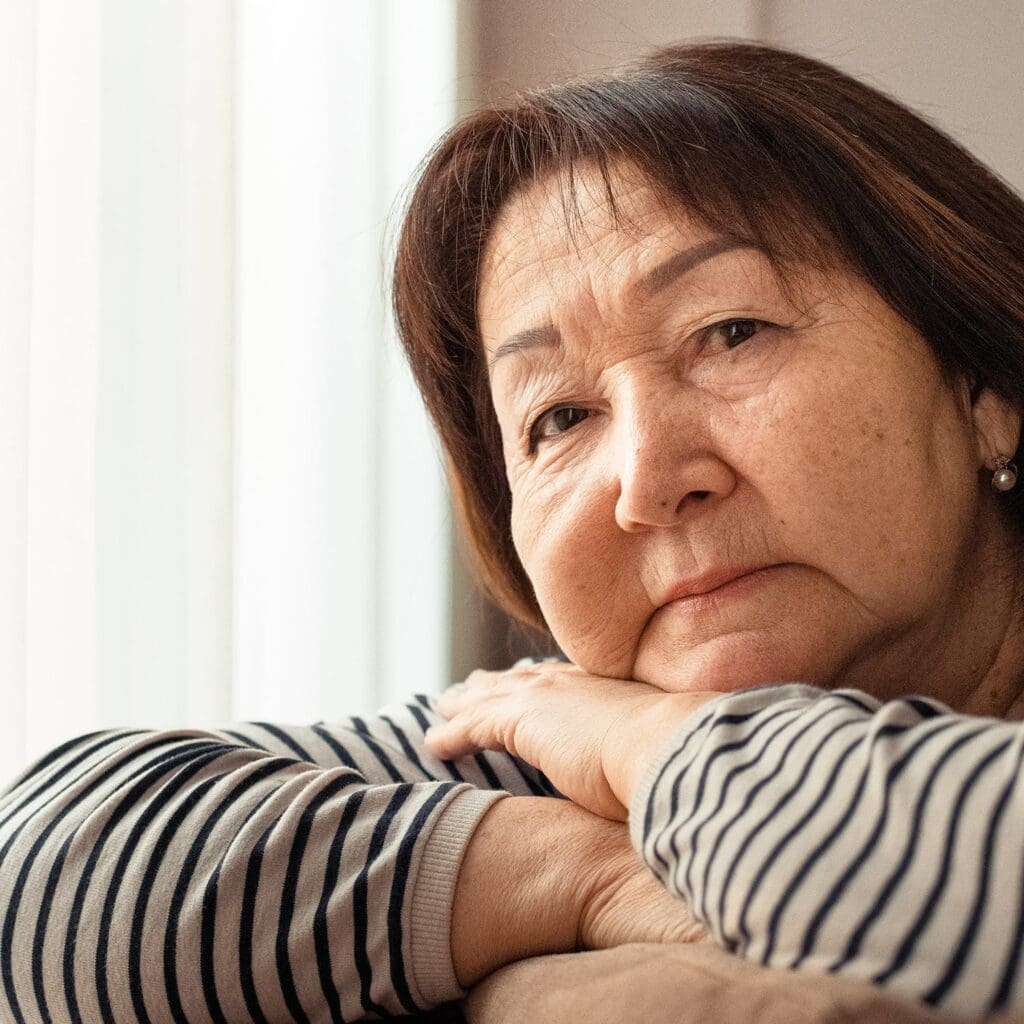Home » Your support hub » Living well with FL » Wellbeing

There are many things about having cancer that you can’t control. The one area where patients can have control is in their general wellbeing. Looking after yourself mentally and physically are hugely important when it comes to coping with your diagnosis or further down the line, getting through treatment. Here are some tips that we hope you will find useful.
There is a great deal of information available about what you should and shouldn’t eat during cancer treatment. Maintaining a balanced diet can help you maintain a healthy weight, cope with the potential side effects of treatment and reduce your risk of disease in the future.
Be wary of any diet that encourages you to exclude whole food groups. For example, sugar, wheat or dairy. Claims are often not supported by scientific research and those exclusions can give you a risk of nutritional deficiencies.
Eating a variety of fruits and vegetables each day will provide you with fibre and energy alongside a range of vitamins and minerals to support your immune system. Imperial College London suggest that we should be including 10 portions of fruit and vegetables per day to reduce our risk of many diseases, including cancer, diabetes and heart disease.
This may be higher amount than you are used to at the moment, so we could recommend starting with 5 a day and working up from there.

Tip: Aim for half of each of your meals to be made up of fruit or vegetables, eating as many different colours as you can. The other quarter of your meal should be a lean source of protein and the final quarter a wholemeal carbohydrate.
The World Cancer Research Fund recommends limiting your intake of red meat to twice a week or a total of 500 g per week and avoiding processed meats where possible. Examples of processed meats include sausages, cured or smoked meat.
Tip: Try to keep your main sources of protein to oily and white fish, chicken, eggs, beans and pulses.
It’s a common misconception that sugar should be removed from your diet to avoid ‘fueling cancer growth.’ At present there are only a few completed studies looking at the relationship between sugar and cancer and most of these have been on mice.
Excluding all sugar from the diet would be extremely difficult and very restrictive and even if you were to eat no carbohydrate whatsoever, your body would release its own stores of glucose essential to keep the body working.
It is important to maintain a well-balanced diet. We would recommend avoiding large quantities of refined sugar as over time this can cause weight gain. There is robust scientific evidence to show that being overweight or obese increases the risk of 13 different cancer types, including breast, bowel and prostate.
Cindy Caldwell Vella

Exercise has been proven to reduce the side effects of cancer treatment. It improves quality of life and can reduce tiredness as well as anxiety and depression. It also strengthens your muscles and joints and prevents treatment related muscle loss.
In people with lymphoma, exercise has been shown to not only lower the risk of a person developing non-Hodgkin lymphoma, it can also have a positive impact on survival in lymphoma patients.
A study by the Mayo clinic (1) has proven that patients who exercised more before a diagnosis survived longer when they developed lymphoma than those less active to begin with. They also found that those who stepped up that exercise after a lymphoma diagnosis, had better survival rates than those who remained less active.
(1) Pophali P Larson MC. Rosenthal AC et al. The level of physical activity before and after lymphoma diagnosis impacts overall and lymphoma-specific survival. Blood 2017.130.914 (suppl).
You should incorporate three things into your weekly exercise routine.
Cardiovascular – This depends on your level of activity before diagnosis, but you should aim to build up to 150 minutes of light to moderate exercise per week. It is more beneficial to break this down into small daily chunks and develop a regular paced exercise routine. For example, a 30-minute walk five days a week. Walking to the shop, to the park all counts.
If you are unsure what to do, you should ask your doctor to refer you to a specialist physiotherapist who will be able to guide you further.
Fatigue is a very common and distressing symptom in cancer patients, especially in lymphoma patients. Cancer related fatigue is more severe and upsetting than normal tiredness as you feel exhausted in your mind and body.
The cause of fatigue is complex and multi-faceted. The effects of treatment on your body, (nauseous, tiredness) a decrease in your daily physical activity due to appointments and treatment schedules, as well as treatment related muscle deconditioning – are all part of feeling fatigued. It can be so debilitating that even walking up the stairs or even talking on the phone becomes difficult. You may be more irritable and lower in mood, as fatigue and depression are linked.
Engage in a regular paced exercise programme – see guidance in the exercise section.
Try to identify activities that increase your fatigue and avoid these activities until you have more energy. If it doesn’t get better, ask your doctor to refer you to a specialist physiotherapist or occupational therapist to help you address it.


A huge number of Cancer Centre’s and hospitals offer integrated treatments as more patients turn to complementary therapies to cope with cancer and its treatment-related side effects and toxicities. These are administered by specialists in complementary cancer therapies.
Integrated oncology which combine conventional therapies with evidence-based practices are increasingly gaining popularity.
Reflexology is the most commonly used complimentary therapy in cancer care as well as other mind-body medicines such as massage, yoga, meditation, relaxation, visualisation, and aromatherapy.
Reflexology is one of the most popular types of complimentary therapy in the UK for people with cancer. The therapist applies gentle pressure to the feet or hands to stimulate energy pathways in the body. Pressing certain points on the feet is thought to help release energy blockages and restore balance. Reflexologists believe that certain points on the feet correspond to organs in the body.
Patients feel very relaxed when having this treatment and there is some evidence that reflexology can help relieve pain and help you cope better with stress and anxiety, giving a general sense of well being. You usually lie in a reclining chair whilst having treatment and the session usually lasts between 45 and 60 minutes.
Yoga has proven to have immense benefits in improving the adverse symptoms in cancer patients. Anyone can practice yoga; you don’t have to be super flexible as it can be practiced at any age and any level.
It has been found to enrich the spiritual needs of patients that conventional therapy doesn’t seem to address.
Yoga helps you to:
Meditation has been practiced in many different cultures for thousands of years. There are different types of mediation, it doesn’t matter how often you want to meditate for, it can be for short or longer periods, whatever feels right. Meditation is another type of mind-body therapy. Mind-body therapies are based on the connection between the mind and the body and how the health of one affects the health of the other.
It’s the practice of concentrating your attention to increase mental awareness and calm your mind and body. The aim is to be aware of thoughts that normally occupy your mind or to experience the sensations that flow through your body. One of the most important parts of meditation is conscious breathing or being aware of the way that you breathe. Taking regular, slow, deep and quiet breaths helps to calm your body and mind. It’s believed that this type of breathing will help lower blood pressure and help reduce stress and anxiety.
These techniques can also be helpful to counteract physical and emotional pain as well as phobias such as fear of scans or needles. Other complementary therapies, such as tai chi and yoga, combine deliberate movement with meditation.
Mindfulness is increasingly being used in cancer management. The definition of mindfulness is the practice of maintaining a non-judgemental state of heightened or complete awareness of one’s thoughts, emotions or experiences on a moment-to moment basis.
Mindfulness originates from ancient Eastern religious traditions such as Hinduism and Buddhism. Today’s western approach focuses on trying to achieve a state of mind that is aware and in control. This approach reduces stress, improves physical health, allowing harmony in life.
Mindfulness is about bringing your attention back to the present moment whenever you feel your mind-wandering. This is done by concentrating on the sensation of breathing and is usually practiced sitting down.
Studies have shown that massage therapy has some positive effects and be beneficial for cancer patients both during and following treatment. Massage therapy can help the side effects of cancer treatment for patients such as pain and discomfort, help improve mood, decrease anxiety and increase range of movement.
However, massage is not suitable for everyone. A full history should be given, and any therapy should only be administered in collaboration with expert therapists trained in cancer care e.g. if you’ve lost lymph nodes you should avoid deep pressure that can bring on lymphodema symptoms.
If you have been through surgery or chemotherapy you should also check with your Doctor. If your Doctor says it is OK for you to have a massage they may suggest that you try and find an oncology trained therapist.
Barry Higgott